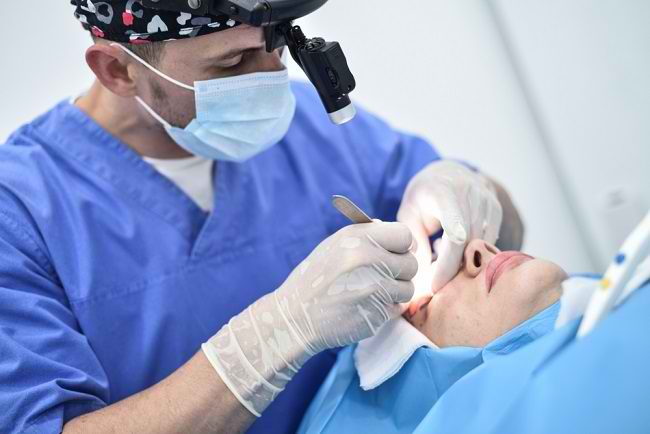DIC (disseminated intravascular coagulation) is a condition when the blood clotting process occurs excessively, so that the blood vessels in the body are blocked and blood flow is blocked. If not treated immediately, this condition can lead to various dangerous complications.
When the body is injured or injured, platelets or blood clotting factors will make the blood clot to close the wound and stop bleeding. After the wound has healed, the blood clot will dissolve or disintegrate and the injured body part can function again.

In certain cases, the blood clotting process can be overactive, resulting in too many blood clots in the body. This condition is called DIC.
Clots or blood clots that form too much can cause blockage of blood vessels and interfere with the smooth flow of blood to important organs, such as the brain, heart, kidneys, and lungs.
As a result, these organs will be deprived of oxygen and nutrients, so they cannot function properly.
When it's severe, DIC can also cause the body to lack blood clotting factors, so people who experience it can experience heavy bleeding. Heavy bleeding in DIC can even occur only because of a minor injury or even suddenly without any injury.
Various CausesDIC (Disseminated Intravascular Coagulation)
DIC usually occurs due to a severe infection or injury, severe inflammation, or overactive blood clotting factors. In addition, there are several things that can increase the risk of developing DIC, including:
- Severe blood infection or sepsis
- Reaction to blood transfusion or organ transplant
- Pregnancy complications, such as abruptio placentae
- Cancer, especially leukemia
- Severe damage or liver failure
- Severe injury, for example in severe head injury, extensive burns, frostbite, or gunshot wounds
- Surgery complications
- Abnormalities in blood vessels, such as aneurysms and hemangiomas
- Poisoning, for example from a venomous snake bite
- Side effects of drugs, such as anesthetics or anesthetics and certain types of drugs, such as cocaine and ecstasy
Some reports also mention that DIC can occur in COVID-19 patients with severe symptoms or who are in critical condition. This is thought to be related to the effects of COVID-19 which can increase blood viscosity.
Various SymptomsDIC (Disseminated Intravascular Coagulation)
The most common symptom of DIC is spontaneous bleeding which can occur in several locations of the body, both inside and outside the body. DIC can also cause the following symptoms:
- Easy bruising
- Red spots on the skin surface
- Blood pressure drop
- Bleeding from the anus or vagina
- Hard to breathe
- Fever
- Nosebleeds or bleeding gums
- Bleeding cough
- Black or bloody stools
- Headache
DIC generally does not cause typical symptoms and can mimic the symptoms of other diseases. Therefore, you need to immediately see a doctor when you experience the symptoms of DIC above, especially if you have a history of injury, infection, or blood disorders.
To diagnose DIC, the doctor may perform a physical examination and supporting examinations such as blood tests, which include:
- Complete blood count and erythrocyte sedimentation rate
- Partial thromboplastin time (PTT) and prothrombin time (PT)
- Platelet count and fibrinogen
- Coagulation test
- D-dimer
How to TreatDIC (Disseminated Intravascular Coagulation)
DIC is an emergency condition that must be treated immediately by a doctor. The following are some of the treatments that doctors can do to treat DIC:
Administration of anticoagulant drugs
To overcome the problem of excessive blood clotting due to DIC, the doctor will give an anticoagulant drug called heparin. However, this drug cannot be given in cases of DIC that has already caused severe bleeding or a significant reduction in the number of platelets.
Blood plasma transfusion
To increase the number of platelets or platelets that are drastically reduced in DIC patients, the doctor will give a transfusion of whole blood or blood plasma. This action also aims to increase various factors that can support blood clotting.
In addition, doctors can also give other drugs to treat the cause of DIC. For example, if DIC is caused by sepsis or a blood infection, your doctor may prescribe antibiotics. Meanwhile, if DIC has caused the patient to go into shock, the doctor can give intravenous therapy or blood transfusions.
Patients will also receive oxygen therapy to meet their oxygen needs. During DIC treatment, patients need to get close monitoring from the medical team at the hospital. Therefore, patients with DIC will usually undergo treatment in the ICU.
DIC is a serious medical condition that must be treated by a doctor immediately. If not treated quickly and appropriately, DIC can lead to serious complications in the form of organ damage or even death.
If you experience bleeding that does not stop or any of the other symptoms of DIC that have been mentioned previously, immediately consult a doctor or visit the nearest hospital so that you can get immediate treatment.









